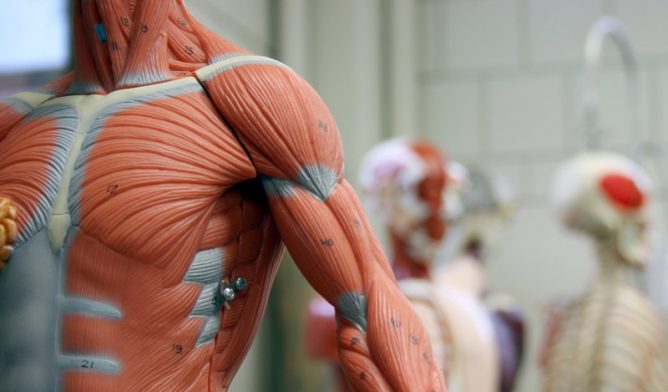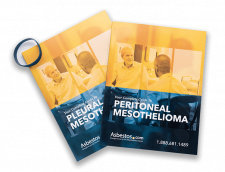Better Muscle Mass Linked to Improved Immunotherapy Response
Research & Clinical TrialsWritten by Suzanne Dixon, MPH, MS, RDN • Edited By Walter Pacheco
Asbestos.com is the nation’s most trusted mesothelioma resource
The Mesothelioma Center at Asbestos.com has provided patients and their loved ones the most updated and reliable information on mesothelioma and asbestos exposure since 2006.
Our team of Patient Advocates includes a medical doctor, a registered nurse, health services administrators, veterans, VA-accredited Claims Agents, an oncology patient navigator and hospice care expert. Their combined expertise means we help any mesothelioma patient or loved one through every step of their cancer journey.
More than 30 contributors, including mesothelioma doctors, survivors, health care professionals and other experts, have peer-reviewed our website and written unique research-driven articles to ensure you get the highest-quality medical and health information.
About The Mesothelioma Center at Asbestos.com
- Assisting mesothelioma patients and their loved ones since 2006.
- Helps more than 50% of mesothelioma patients diagnosed annually in the U.S.
- A+ rating from the Better Business Bureau.
- 5-star reviewed mesothelioma and support organization.
Testimonials
My family has only the highest compliment for the assistance and support that we received from The Mesothelioma Center. This is a staff of compassionate and knowledgeable individuals who respect what your family is experiencing and who go the extra mile to make an unfortunate diagnosis less stressful. Information and assistance were provided by The Mesothelioma Center at no cost to our family.LashawnMesothelioma patient’s daughter
How to Cite Asbestos.com’s Article
APA
Dixon, S. (2020, November 3). Better Muscle Mass Linked to Improved Immunotherapy Response. Asbestos.com. Retrieved April 15, 2024, from https://www.asbestos.com/news/2019/03/28/muscle-mass-immunotherapy-response/
MLA
Dixon, Suzanne. "Better Muscle Mass Linked to Improved Immunotherapy Response." Asbestos.com, 3 Nov 2020, https://www.asbestos.com/news/2019/03/28/muscle-mass-immunotherapy-response/.
Chicago
Dixon, Suzanne. "Better Muscle Mass Linked to Improved Immunotherapy Response." Asbestos.com. Last modified November 3, 2020. https://www.asbestos.com/news/2019/03/28/muscle-mass-immunotherapy-response/.

Researchers at Osaka University in Japan have identified a key component of physical health associated with response to immunotherapy drugs.
Among people with non-small cell lung cancer, higher levels of muscle mass predicted a better response to PD-1 inhibitor immunotherapy.
Sarcopenia — the term used to describe low muscle mass levels — appears to reduce the benefits a person receives from immunotherapy cancer treatment.
“Sarcopenia at baseline is a significant predictor of worse outcome in patients with advanced NSCLC [non-small cell lung cancer] receiving PD-1 blockade,” the study investigators wrote.
The results, published February 21 in Nature Scientific Reports, highlight the importance of good baseline strength and physical function for mesothelioma patients considering immunotherapy treatments.
Immunotherapy is not a standard mesothelioma treatment option. However, there are more than a dozen clinical trials currently investigating PD-1 inhibitor therapy for the asbestos-related cancer.
“Screening for sarcopenia may help identify patients more likely to achieve a long-term response in routine clinical practice,” the authors wrote.
Strong Body, Stronger Immunotherapy Response Rate
Researchers collected information on 42 men and women with non-small cell lung cancer seen at their facility between January 2016 and September 2018.
The patients were treated with Opdivo (nivolumab) or Keytruda (pembrolizumab).
CT scans available in the medical records allowed the investigators to estimate each patient’s muscle mass.
If muscle mass fell below a predetermined cut point, they were classified as having sarcopenia.
Slightly more than half of patients had sarcopenia. These subjects had significantly worse outcomes.
NSCLC One-Year, Progression-Free Survival Rate
- No Sarcopenia: 38.1 percent
- Sarcopenia: 10.1 percent
NSCLC Overall Response Rate
- No Sarcopenia: 40.0 percent
- Sarcopenia: 9.1 percent
Low Muscle Mass Known to Impact Cancer Treatment
Dozens of studies have documented the connection between low muscle mass and poor outcomes in cancer patients.
In nearly every type of solid tumor studied, researchers have demonstrated patients with sarcopenia fare worse during and after cancer treatments.
This holds true for surgery, radiation therapy and chemotherapy.
Having low muscle mass is associated with more infections, more treatment-related toxicities and shorter progression-free and overall survival.
The results of the Osaka University study show reduced response to immunotherapy can be added to the list.
Immunotherapy and Mesothelioma
As investigators continue to study how best to use immunotherapy to treat mesothelioma, it is likely more patients will have the opportunity to try these drugs.
Regardless of what treatment is planned, studies support prioritizing a balanced diet with plenty of protein as well as gentle movement to keep the body functioning efficiently.
Nutrition experts consistently identify these as important components of cancer care for all patients starting treatment, regardless of tumor type.
“Early recognition and treatment of sarcopenia have the potential to bring additional benefits to all patients scheduled to receive immune checkpoint inhibitors,” the authors wrote. “We believe that the prevention of skeletal muscle loss and the development of predictive biomarkers are both important to gaining the greatest benefit from immune checkpoint inhibitors in the future.”







